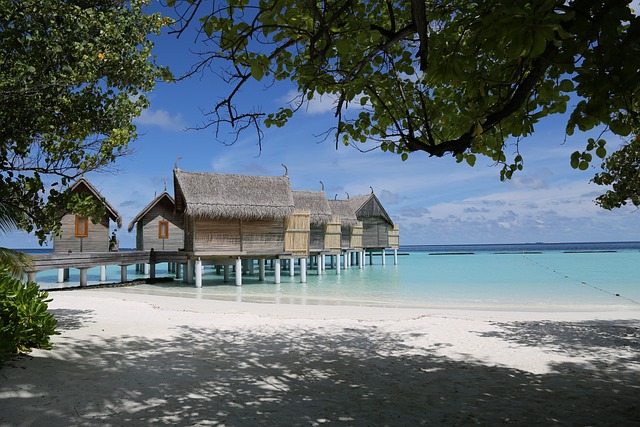Riots and civil unrest in the Maldives have been escalating in recent weeks, but what’s going on? As tensions rise, it’s important to understand the underlying causes of the unrest and to stay informed about the latest developments. In this blog post, we’ll take a closer look at the riots and civil unrest in the Maldives, exploring the factors that have led to the current situation and assessing the implications for the region.
The background of the Maldives
The Maldives is a small archipelago of islands in the Indian Ocean, located southwest of India and Sri Lanka. For decades, the country has been a popular tourist destination due to its tropical climate, beautiful beaches, and luxury resorts. However, in recent years, riots and civil unrest have been rising in the Maldives. In 2020, widespread protests erupted against the government over human rights abuses and failure to address corruption. The demonstrations quickly grew into larger riots as citizens demanded an end to authoritarian rule and better living conditions. Despite multiple attempts by the government to quell the unrest, the protesters remain resilient in their fight for justice and democracy.
The current situation in the Maldives
Riots and civil unrest have been taking place in the Maldives over the last few weeks. Demonstrations began when the Parliament rejected an amendment to a law that would allow protests without prior permission in the capital. This sparked outrage among the protesters who were calling for democratic reforms and greater respect for human rights in the country. The situation quickly deteriorated, with reports of media workers being attacked and a continued failure of the government to address the dissolution of a leading human rights group. In response, opposition political parties have been pushing for a crackdown on protests, further adding to the tensions.
The reasons for the riots and civil unrest
The recent wave of riots and civil unrest in the Maldives has been driven by growing discontent with the current government’s failure to address long-standing grievances. Citizens are protesting against restrictions on freedom of speech and assembly, inadequate access to justice, and attacks on human rights groups and media workers. The latest spark for the unrest was a proposal in parliament that would have allowed protests without prior permission in the capital. This was rejected, adding to the frustration of the citizens and leading to an increase in demonstrations across the country.
The potential consequences of the riots and civil unrest
The ongoing riots and civil unrest in the Maldives could have far-reaching consequences if not addressed soon. The protests are a symptom of a larger problem – the dissolution of a prominent human rights group, attacks on media workers around protests, and the continued failure of the government to address this situation. If the situation is not addressed quickly, it could lead to further violence, disruption of businesses, or even political instability. Ultimately, the Maldives’ government needs to find a way to resolve the current unrest before it escalates into a more serious problem.
Crackdown on protests by opposition political parties
The Maldivian government has recently cracked down on protests by opposition political parties in an attempt to prevent further riots and civil unrest in the Maldives. After a series of demonstrations, the police have arrested several opposition activists and imposed restrictions on public gatherings and rallies. The move has been criticized by human rights groups, who allege that these measures are in breach of the right to peaceful protest.
Parliament rejects amendment to a law allowing protests without permission in capital
On October 1st, the Maldives Parliament rejected an amendment to the law that would have allowed protests without permission in the capital city of Male. This decision was met with criticism by opposition parties and human rights groups, who argue that it further restricts the rights of citizens to protest peacefully and participate in civil unrest. Riots and civil unrest in the Maldives have been ongoing since early 2019 when a ruling from the Supreme Court ordered the reinstatement of 12 opposition politicians who had previously been arrested or exiled.
Attacks on media workers around the protest
The Riots and civil unrest in the Maldives have caused a great deal of tension, with opposition political parties and protesters clashing to make their voices heard. Unfortunately, media workers have been caught in the crossfire, with journalists and other media personnel facing harassment and intimidation during the protests. Journalists attempting to cover the events have been subjected to physical and verbal abuse by the police, while pro-government groups have been attacking media workers to prevent them from reporting on the situation. Furthermore, journalists who have attempted to document the events have had their equipment confiscated or destroyed. This is a concerning trend that undermines press freedom and the ability of citizens to access unbiased information about the riots and civil unrest in the Maldives.
The continued failure of the government to address the dissolution of human rights group
The unrest in the Maldives has been further compounded by the government’s refusal to address the dissolution of the Maldivian Human Rights Commission, which has been met with strong opposition from various civil society groups. This is an especially concerning situation, given the role the MHRC played in monitoring and reporting on human rights abuses during the riots and civil unrest in the Maldives. As a result, it has been increasingly difficult for citizens to access their basic human rights and hold the government accountable. In addition, without the crucial support provided by the MHRC, protesters have had little recourse when confronted with alleged police brutality or other oppressive measures. In some cases, they have taken to the streets to express their outrage over this lack of response from their government, fueling more riots and civil unrest in the Maldives.

